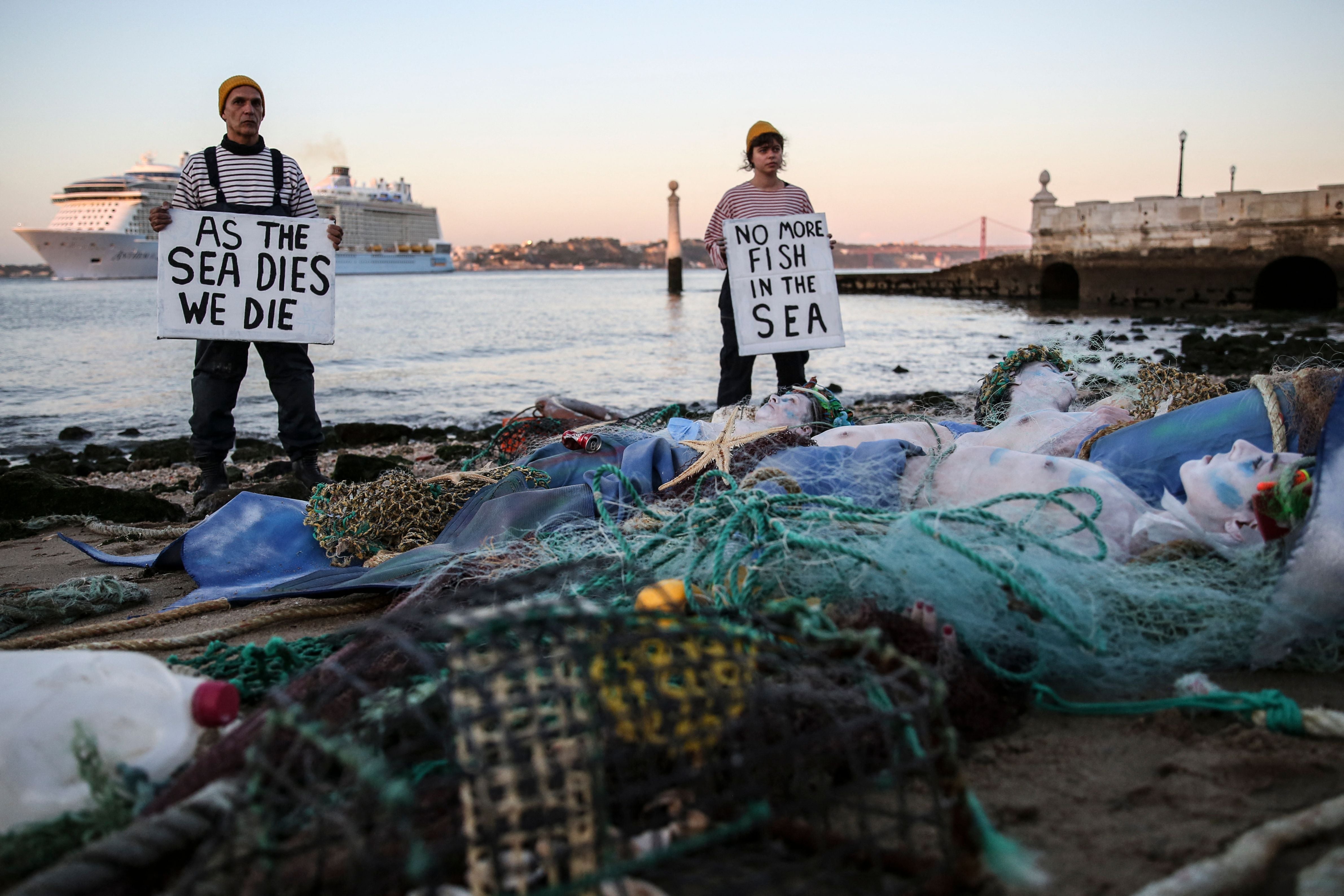Aquaman star Jason Momoa named ‘Advocate For Life Below Water’ at UN Ocean Summit
‘The ocean is an ancient teacher, a guide and a muse. It is also existential,’ says the actor
Aquaman star Jason Momoa has been named an “Advocate for Life Below Water” by the United Nations as a global oceans summit gets underway this week.
The actor, a native Hawaiian with Polynesian roots, has long been involved in ocean conservation work.
“With this designation, I hope to continue my own journey to protect and conserve the ocean and all living things on our beautiful blue planet, for our generation and the generations to come,” Momoa said, as he received the title from the UN Environment Programme (UNEP) at the UN Ocean Conference in Portugal.
He spoke of how growing up on in one of the world’s most beautiful archipelagos has given him a reverence for the ocean and nature.
“For me, the ocean is an ancient teacher, a guide and a muse. It is also existential. Without a healthy ocean, life on our planet as we know it would not exist,” he added.
The five-day summit in Lisbon, Portugal, has attracted hundreds of government officials, scientists and activists from more than 120 countries in a bid to better protect the ocean from impacts of the climate crisis, biodiversity loss and runaway pollution.
UNEP’s Executive Director, Inger Andersen, welcome Momoa to the “UN family” and noted that he had a strong track record in advocating for ocean issues.
“In 2021, the 4 primary measures of climate change – greenhouse gas concentrations, sea level rise, ocean temperatures and ocean acidification – all hit record highs. This means the time for action is now,” she added.
The ocean absorbs over 90 per cent of excess heat caused by greenhouse gas emissions from the burning of fossil fuels, and millions of tons of plastic ends up in waters every year. The industrial fishing practice of bottom trawlingis estimated to emit more CO2 than global aviation, according to activist group Ocean Rebellion.

Andersen’s remarks were echoed by UN Secretary General António Guterres who told attendees that the world has taken the ocean for granted and was facing an “Ocean Emergency”.
“Sea levels are rising. Low-lying island nations face inundation, as do many major coastal cities in the world. The climate crisis is also making the ocean more acidic, which is disrupting the marine food chain. Ever more coral reefs are bleaching and dying,” he said.
“Nearly 80 per cent of wastewater is discharged into the sea without treatment. And some 8 million tons of plastic waste enter the oceans ever year. Without drastic action, this plastic could outweigh all the fish in the oceans by 2050.”
The UN chief stressed the importance of more science and innovation to build ocean resilience.
So far at the summit, the US and the European Commission pledged to join UNEP’s Clean Seas Campaign devoted to ending marine litter and plastic pollution. The initiative, which Tanzania, Uganda, Cabo Verde, Rwanda and Portugal also joined, now represents 75 per cent of the world’s coastline. The need to restore and protect coral reefs is also a priority.
It is expected that countries will adopt a declaration later this week that could help protect and conserve the ocean, the UN said, although the pact will not be binding.
What remains to be seen, however, is if global agreement can be reached on what’s known as the “Treaty of the High Seas”, to govern human maritime activities.
The pact has been under discussion for ten years, and a fourth round of negotiations earlier this year failed to produce a result.
“As the seas die, we die, and the seas are dying,” Roc Sandford with the activist group Ocean Rebellion, wrote in a statement. “If the collapse of marine biodiversity is not halted immediately, release of blue carbon currently sequestered in the oceans will accelerate climate breakdown and condemn countless people to an agonising death.
“We must rush reforms of the existing UN ocean-focussed structures, currently criminally unfit for purpose, whilst simultaneously building a new and effective ocean governance body to take their place. It’s now or never. I don’t understand why everyone isn’t screaming, given what we know about what is happening in the Ocean.”
Join our commenting forum
Join thought-provoking conversations, follow other Independent readers and see their replies
Comments
Bookmark popover
Removed from bookmarks